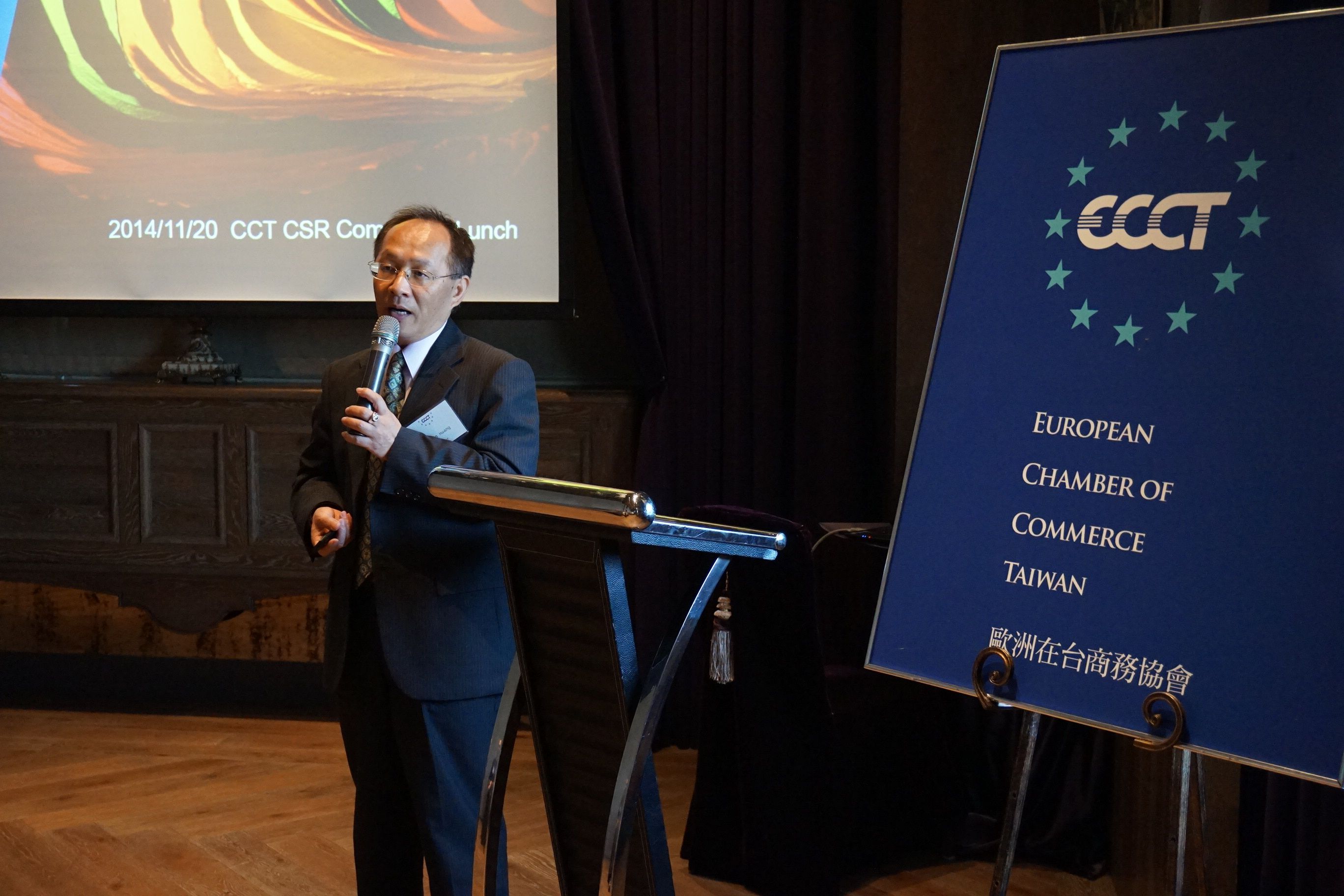Linking CSR strategy with core business competence

Huang began with an overview of global "mega-trends" in sustainability. Based on one study cited by Huang, by the year 2050, with a projected global population of 9.2 billion, if all the people on the planet were to enjoy a good standard of living, based on current consumption patterns, we would need the equivalent of 2.3 earths to meet the demands in terms of food, water and other natural resources. Estimates from other studies vary slightly, either below or above this, but there is general consensus that we are on an unsustainable path.
Global leaders have been talking serious about sustainability for at least two decades but, while awareness is growing, there is still very little sense of crisis because not enough attention has been paid to the real and dire consequences of the rapid depletion of resources and the implications. There is a real risk that nations will go to war over scarce resources in the future if insufficient action is taken to steer the world onto a more sustainable path.
At the current rate of CO2 emissions build up in the atmosphere, the accumulated build-up of emissions could surpass 450 parts per million by the year 2036. This crucial milestone is significant because it would result in a global temperature increase of two degrees Celsius, which is seen by scientists as a crucial level that would trigger profound changes in delicate ecosystems, which in turn would have much more far-reaching and devastating economic consequences.
Governments have only started taking action in recent years by setting emissions reductions targets and introducing legislation aimed at reaching the targets. The EU has been the global leader in this drive. The EU managed to reduce emissions by 17% between 1990 and 2010 while economic growth increased by 45% over the same period. This was done by various measures such as introducing strict building codes and improving energy efficiency in industry. Buildings in Europe now use 50% less energy compared to 25 years ago over their lifetimes while European industry is 19% less energy intensive. In October this year EU leaders committed to cut CO2 emissions further to 40% below 1990 levels and to increase the use of renewable energy to 27% of the total energy mix by the year 2030.
Recently the US and China also committed to reducing emissions but have yet to announce actions on how to do this.
Carbon markets have been introduced in the EU, New Zealand, Switzerland, and more recently in parts of China but much more will need to be done. Carbon should be included in the price of goods and services to reflect the monetary as well as environmental costs. Huang provided several examples of how expensive products would be if we "internalized externalities" (if we took into account the environment costs, particularly resource extraction, agricultural processes, energy and water usage). Many food items would be almost triple the current selling price if these factors were included. If we were to go further and add social and fair trade costs (for example, to make include a living wage for all workers in the supply chain), the costs would be even higher. To reduce the depletion of the earth's resources, we will have to increase the reuse, refurbishing and recycling of products. This is an opportunity for companies engaged in these types of businesses.
There will be an increasing focus on a company's environmental footprint as well as their social practices in future. Consumers and governments are already demanding greater transparency not only in companies' own operations but throughout their supply chains.
Companies will need to transform their business models from the design process all the way through to recycling. Companies that are ahead of the curve and start "walking the talk" on making their supply chains greener and more ethical will reap the benefits in the form of customer loyalty. They will do even better if they can harness their particular expertise to tackle environmental problems. This creates a virtuous cycle of environmental benefits, boosting their reputations and profits.
Huang cited some good examples of how CSR has been successfully integrated into business strategy and how companies are using their expertise to boost their sustainability credentials as well as their bottom lines. Moovel Gmb (an offshoot of Mercedes Benz) for example is a pioneer in introducing low carbon car sharing schemes in a number of cities, a business model which is helping make urban mobility both more convenient and better for the environment. Meanwhile rival car maker, Toyota, has been a major promoter of hybrid vehicles for many years. In the food industry, Nestle has drastically reduced the waste of resources, electricity and water in its production processes while clothing brand Adidas has cut the use of water and chemicals by 50% by using dry dye.
Huang concluded that companies should embrace the new trend, use their competence to develop new sustainability concepts and thereby differentiate themselves from their competitors.
